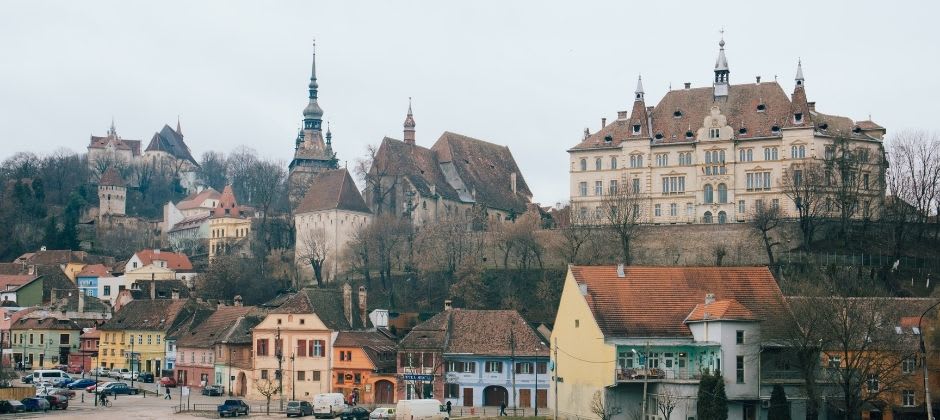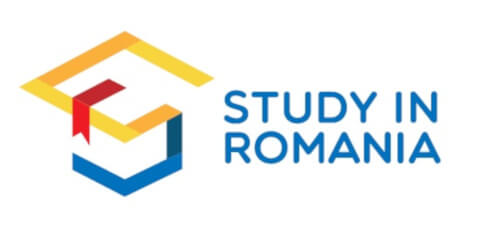Study in Romania: Housing & Living Costs
Romania has one of the lower costs of living in the EU, even in Bucharest. This means that you can enjoy a cosmopolitan lifestyle on a relatively small budget. That being said, you’ll still need to budget.

Romania has one of the lower costs of living in the EU, even in Bucharest. This means that you can enjoy a cosmopolitan lifestyle on a relatively small budget. That being said, you’ll still need to budget.
As the cost of living is at its highest in Bucharest, these costs will reflect the cost of living in the capital. Some average costs of living in Romania (in ROM and USD) are:
- Monthly rent (1 bedroom apartment): 1900ROM ($470) *
- Utilities (monthly average): 475ROM ($115)
- Monthly public transport pass: 70ROM ($17)
- Meal (inexpensive restaurant): 35ROM ($8.60)
- Coffee: 10ROM ($2.50)
- Milk (1 liter): 5ROM ($1.25)
- Vegetables (1kg): 4ROM ($0.95)
- Eggs (dozen): 10ROM ($2.50)
- Water (1.5 liter): 2ROM ($0.50) **
- Chicken (1kg): 21ROM ($5.15)
- Wine (bottle): 25ROM ($6.15)
- Bread (loaf): 3ROM ($0.75)
* Most students rent accommodation from their school. This is known as dorms in the US or corridors or halls in Europe. The cost of renting this type of accommodation is much lower. It varies from school to school and depending on the type of room you want.
** You can’t drink the tap water in Romania. You’ll need to factor bottled water into your budget. That being said, the Romanian government is working hard to improve the quality of the tap water.

Excluding rent, the average cost of living per month is 2300ROM ($560). Rent is normally counted as a separate cost.
As for healthcare, Romania has a single-payer system, like many other European countries. Romanian healthcare is generally of a good standard, although it’s not as good in rural areas as in cities.
Once you have your residency card in hand, you can access healthcare. If you’re over twenty-six, you’ll need to go through your insurance provider. If it’s an emergency, you can access healthcare without having to worry about providing insurance details.
As for methods of payment, Romania is cash-driven. Bank transfers are also common. Cards are becoming more common, particularly in cities. Outside of cities, cash is king. Make sure you carry enough cash on you for emergencies and day-to-day expenses. As for changing currency, take Euros with you. You can easily and widely change Euros to Romanian Lei across the country.
Overview
Get an overview of what it's like to live and study in Romania. Find out a little bit more about this exciting country and what it can offer you.
Education System
Want to learn about how the higher education system works in Romania? Romania offers a tiered education system. It even has opportunities for studying abroad elsewhere.
Student Visas & Permits
If you're from outside of the EU, you'll need a visa to study in Romania. This section tells you what you need to do to get your study visa.
Tuition Fees & Scholarships
Tuition fees for Romanian programs vary based on the school as well as your nationality. Usually EU/EEA/Switzerland citizens will have a different tuition fee than non-EU students. There are also scholarships available.
Language & Culture
Romanian culture is full of tradition! From a unique language to incredible wine and a burgeoning art community, Romania has a lot to offer. Find out more about what the country offers in terms of language, culture, cuisine, and more!
Application Process
Applications in Romania go to individual schools. This section tells you what you need to do to present in most applications to Romanian schools.
Programs
Ready to look at education in Romania? Use our search engine to find and compare top programs in Romania!
The content of this country guide has been developed in partnership with Study in Romania.
About Study in Romania

The Study in Romania portal is developed and hosted by the Executive Agency for Higher Education, Research, Development and Innovation Funding (UEFISCDI), within the framework of the "Internationalisation, equity and institutional management for a quality higher education" (IEMU) project. The portal aims to offer a high quality data base with the existing educational offer of Romanian universities.

Keystone Team
Author
The Keystone Team is comprised of experienced educators and advisors dedicated to providing valuable resources and advice to students all over the world.